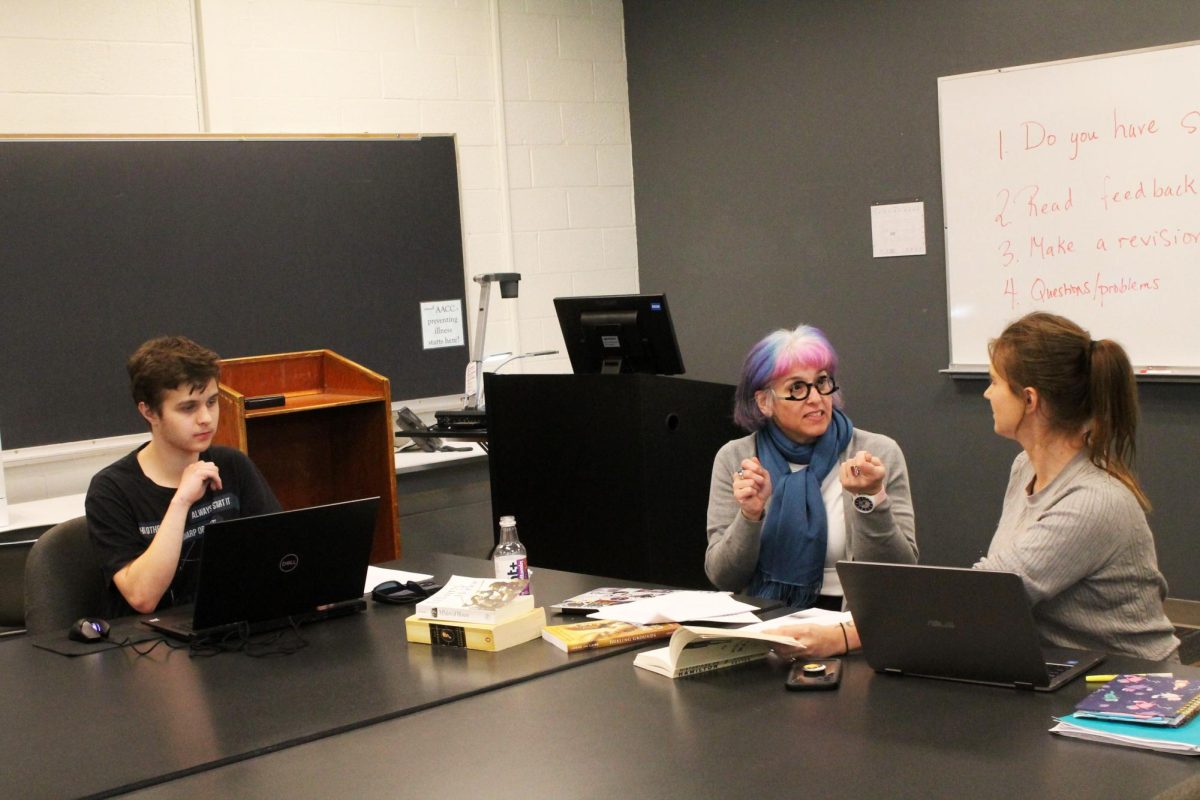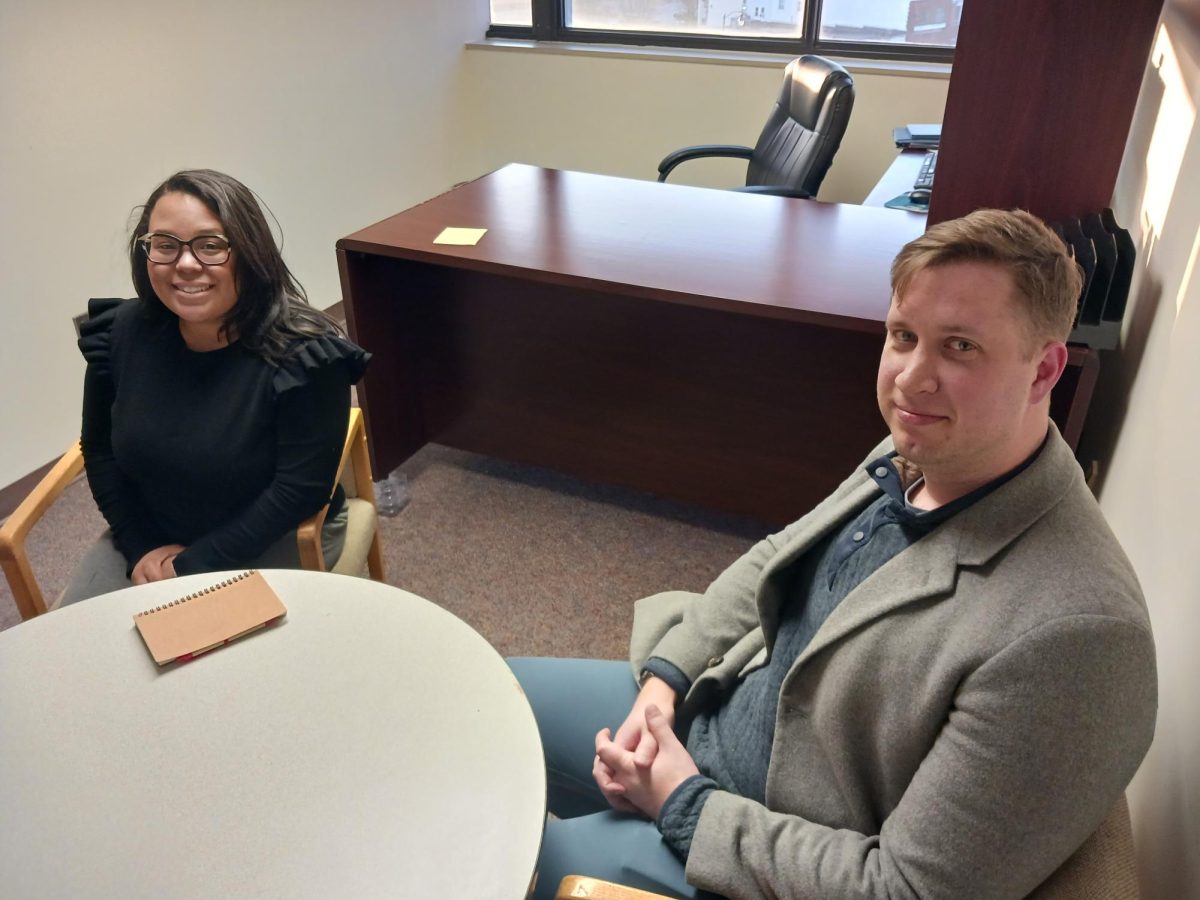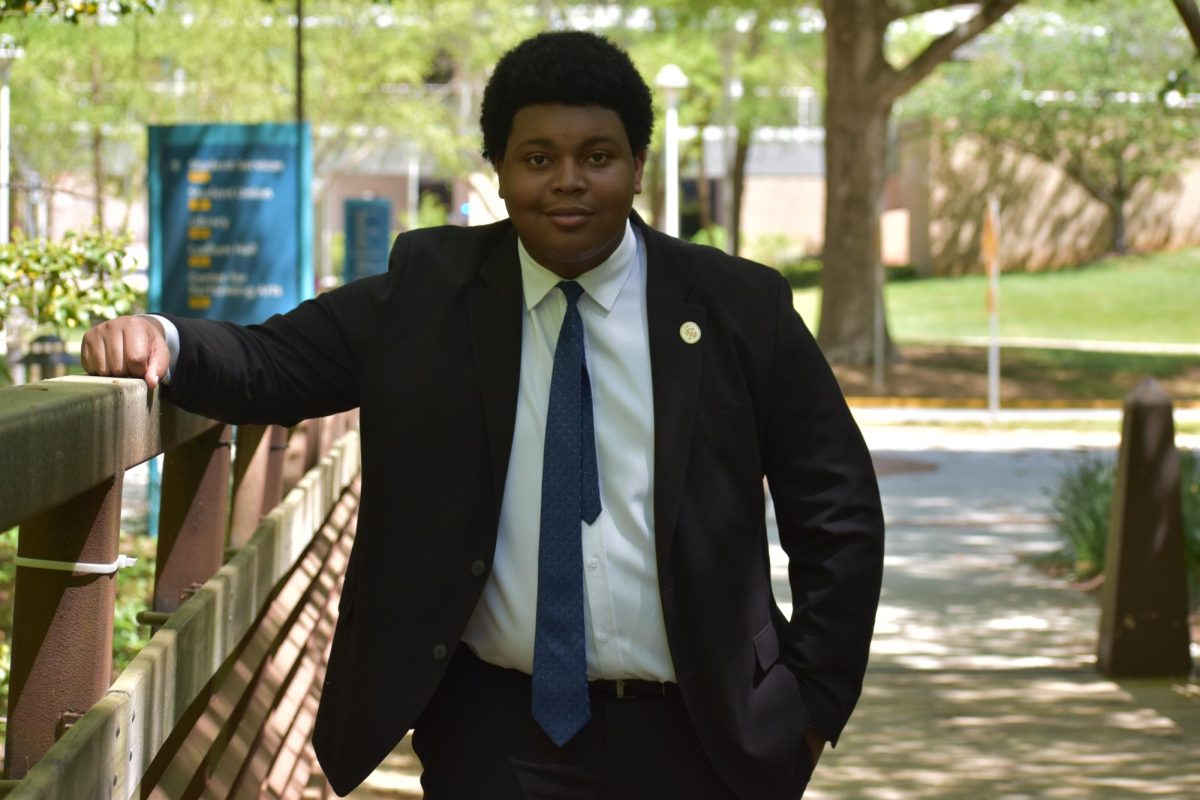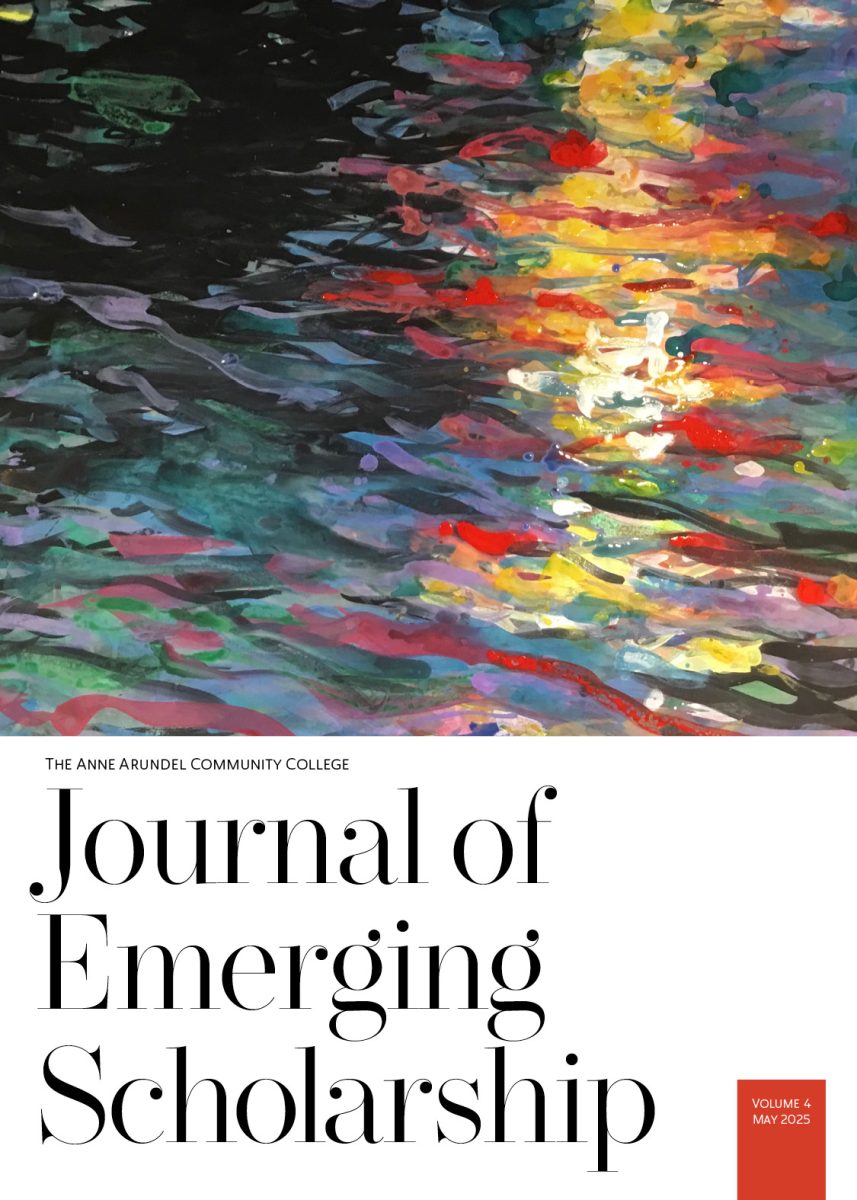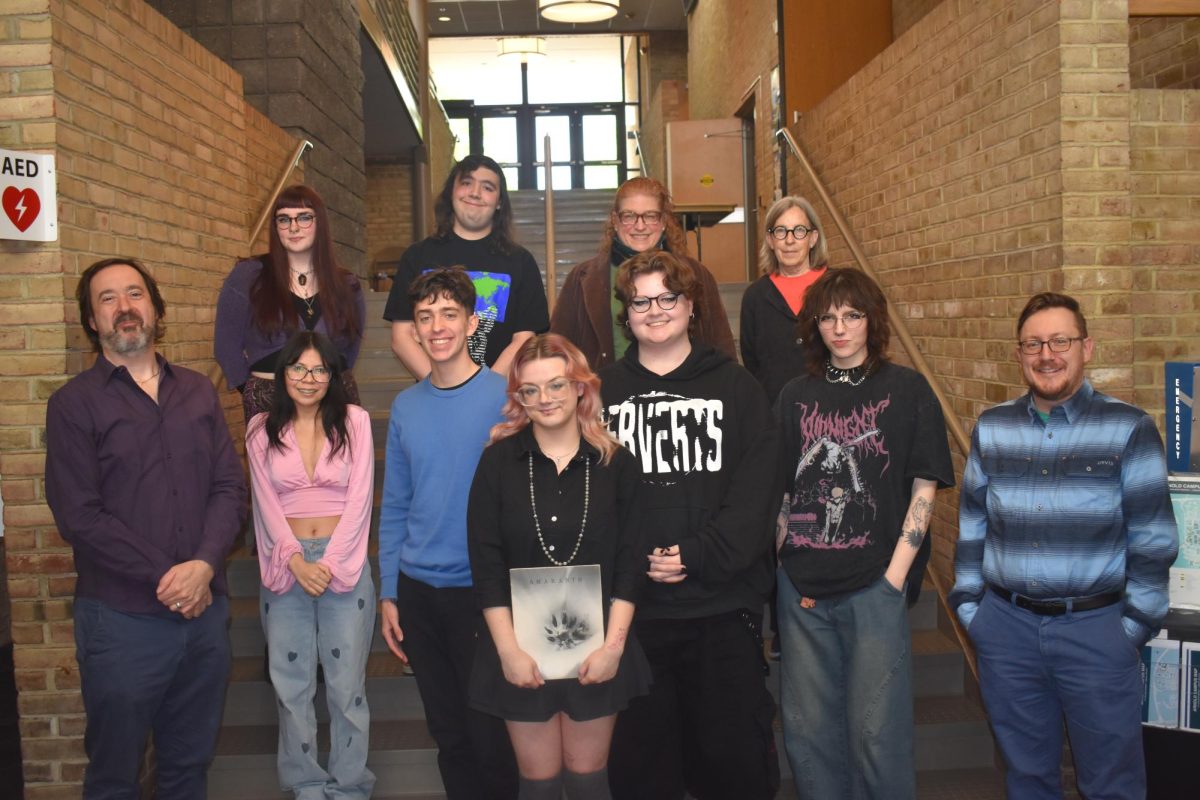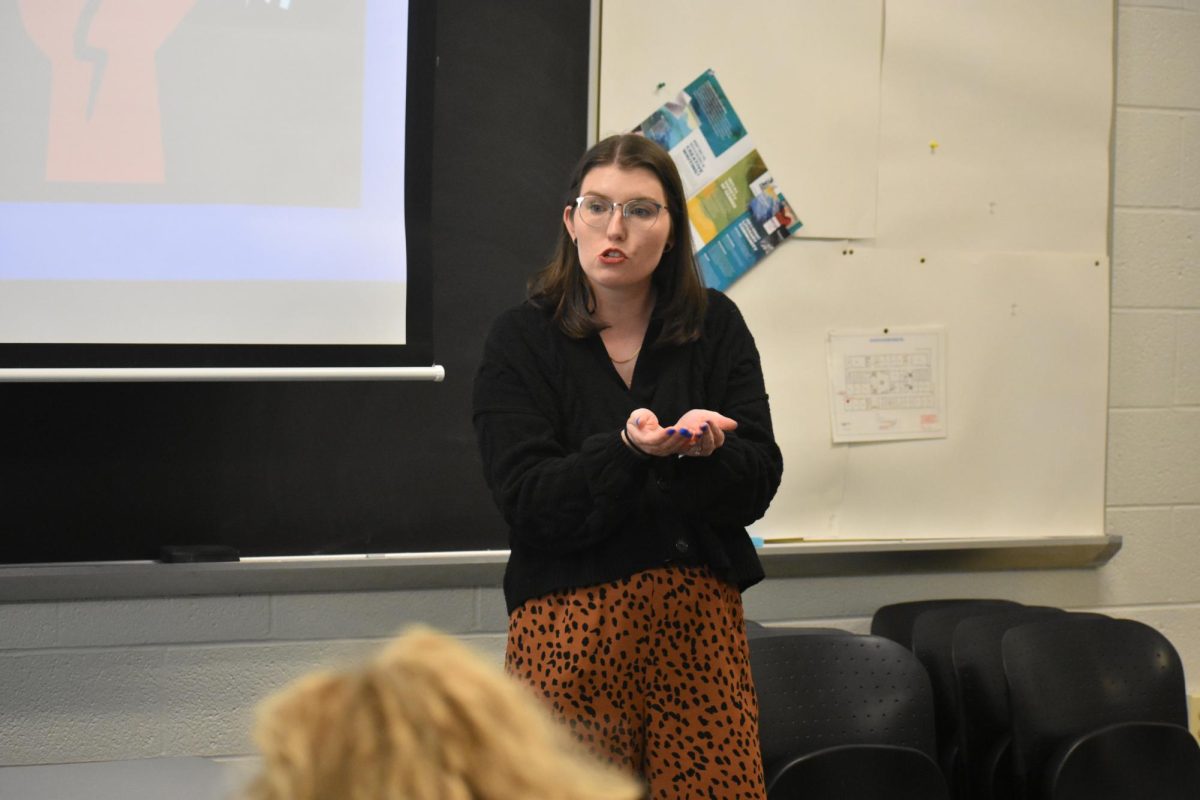Professors in a handful of classes have discarded the traditional system of grades in favor of “ungrading,” in which they don’t assign scores to individual tests and assignments.
In those classes, professors allow students to assess their own performance at the end of the semester, and then ask them for input on their final grades.
“It makes them feel a lot less stressed about what they’re trying to do in the class,” KT Perkins, an English professor who uses the ungrading system, said.
Professors apply ungrading in a variety of ways.
For example, English professor Margaret Boas uses a system called labor-based grading, or contract grading, for her English 101 classes. That means students choose a letter grade they want to get, and then fulfill a certain set of criteria, like completing assignments and papers, to earn it.
On the other hand, sociology professor Gina Finelli uses a different type of ungrading, letting students assess their own learning and choose their final grades, with their professor’s approval, at the end of the semester.
English professor Garrett Brown uses a similar system in his creative writing classes.
“You want your students to focus on the feedback that they’re getting, and not … just look at the grade,” Brown said. “So I think it works particularly well for, like, writing classes.” Traditional grading systems in English classes, according to Boas, discriminate against Black and immigrant students and require students “to talk like a middle-aged, middle-class white man.”
“I had this epiphany where I realized, ‘Wow, this standard I’ve been trying to apply is white supremacist,’” Boas, who began ungrading last year, said. “I’m going to do [ungrading] because I believe that this is an anti-racist, much more inclusive, diverse pedagogy. It meets students where they are.”
Shelley DeBlasis, an English professor who started using the ungrading system last year, added, “I think it has potential to do what the theory says, which is to be more equitable for students and to be an anti-racist assessment.”
DeBlasis added that ungrading is significantly more work for the professor.
“I think I actually have to give students, kind of, more feedback on their writing because they’re not getting a grade so you can’t quickly look in Canvas and be like, ‘Oh, I got an A or got a B or got a C,’” DeBlasis said. “I don’t think it’s for everyone.”
Finelli, who began ungrading last semester, agreed the system has upsides and downsides, and she will need to collect more data before deciding whether to continue.
“There’s more challenges right now than advantages,” Finelli said. “Honestly, most students are not all that great at doing assessments, and I’m trying to figure out ways to help with that.”
Brown, who began using the ungrading system last year, agreed.
“You’re fighting against a culture of grading,” Brown said. “Even if you say you’re ungrading and that, you know, you’re not officially putting grades on things, the students know that at the end of the day, you have to give them an A, B, C, D, F.”
Brown added that some students said ungrading “devalued” the class and made it a lower priority than courses that are graded.
Still, Perkins, who has used ungrading for years, would “absolutely” recommend it as a teaching method.
“There’s a lot of research to back up the ungrading methodology and pedagogy,” Perkins said. “It’s shown that [traditional] grades hardly ever correlate to learning. So, if a student is trying very hard, and they’re coming in, they’re asking questions, they’re turning in something that they’ve really worked hard on, why not give them an A?”
Some profs discard conventional grading
A handful of professors, including English professor Shelley DeBlasis, are using a grading system called “ungrading,” which they say makes learning more equitable for students.
Tomi Brunton, Editor-in-Chief
December 6, 2023
0
More to Discover



